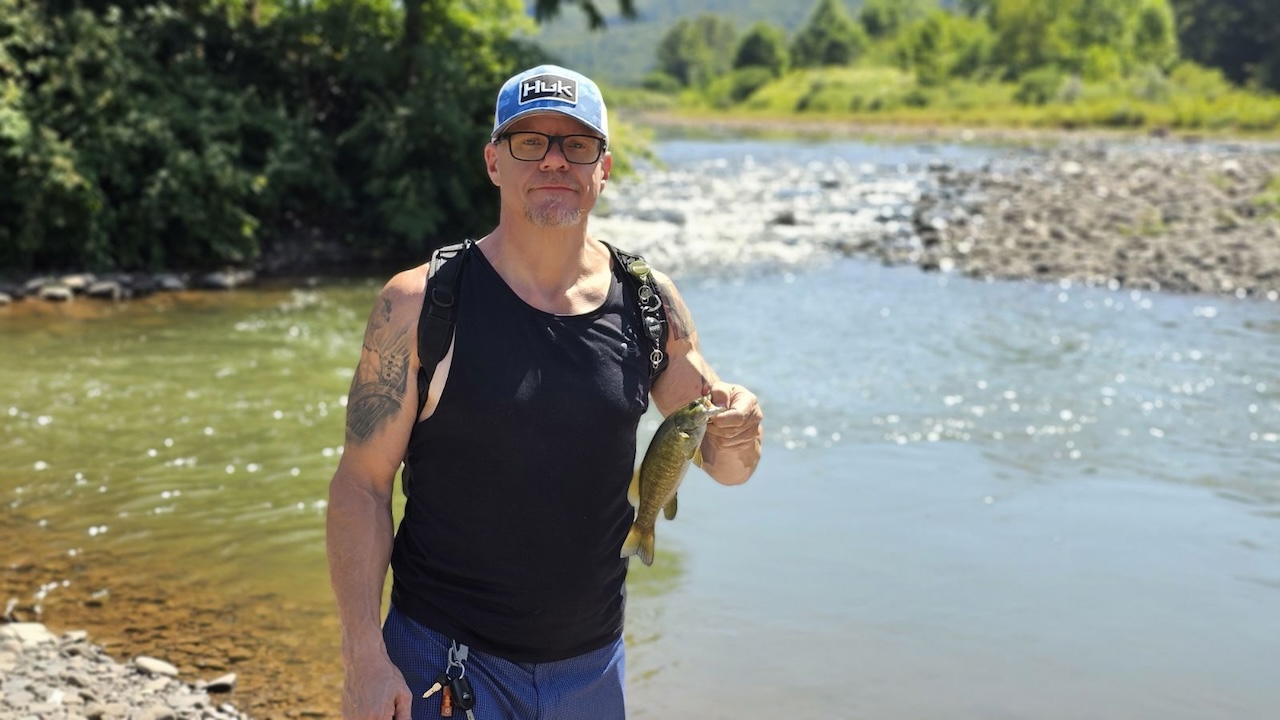Main Street News

Ted Howley’s Weight Loss Journey
Pre-diabetic. Fatty Liver. High cholesterol. Three knee surgeries. Depressed.
This was Ted Howley’s life prior to January 17, 2022. “Two years ago, I was staring death in the eyes,” he said.
Ted had struggled with his weight for years, often yo-yo dieting and cycling through different forms of exercise. “I would go hard for a while and then fall off. I’d lose 40 pounds only to gain 50 back.”
He had been toying with the idea of getting bariatric surgery for years, but said he felt that it was like “cheating.”
“I felt like I would be taking the cheater’s way out, so I asked friends and family what their opinions were and most were all for it. So I finally went to a doctor and decided to move forward with it,” he said. “I can tell you now, that after going through it, it is not the cheater’s way out. It was the hardest thing I’ve ever done.”
Surgery prep and recovery
Prior to surgery, Ted had to take pre-operative classes that prepared him for the weight loss journey from pre-surgery through the rest of his life. Topics covered included nutrition, diet, exercise, behavioral changes, among others. Additionally before surgery, he had to see a variety of doctors, including a heart doctor and nutritionist, and he had to undergo a psychological evaluation.
Ted underwent a gastric bypass, which is surgery that helps people lose weight by changing how the stomach and small intestine handle food. Essentially, they remove part of the stomach during the surgery to make the stomach smaller, which helps people feel fuller with less food. The process also “restarts” your metabolism as well. He said it takes you back to “teenage type metabolism”.
For two weeks leading up to the surgery, Ted had to do a liquid diet. Following the surgery, he had to do a liquid diet for another two weeks, a mush diet for another week, soft foods for an additional week, and then finally he was able to slowly transition back to normal foods.
“Basically for the first year after my surgery, I focused on trying to learn how to eat again,” Ted said. “It wasn’t easy. To get out of the hospital, you have to take an ounce of water every fifteen minutes. It doesn’t seem like it could be that hard, but it was so difficult.”
For the two weeks following surgery, he said that his main priority was staying hydrated and moving around, mainly to get the gasses they fill you with for surgery out of your body.
The first year after his surgery, Ted lost 130 pounds in total. “Unfortunately, when I lost all of the fat, I also lost all of my muscle. I almost looked sick, because the weight loss came off so fast.”
So as to not overwhelm his body, Ted slowly started reintroducing exercise. He currently works out four to five times a week with weights, has been doing some boxing and MMA type routines, and typically during the week, he and his family are skiing, hiking, or biking. Ted and his wife, Lindsey, are also currently training for a Green Beret inspired “obstacle type race” called The Bonefrog.
“I’ve learned a lot about weight loss and nutrition as a whole. Weight loss is a scientific formula. You have to expend more calories than you take in. The best way to do that in my opinion is remembering that diet is 80% and exercise is 20% of weight loss, monitoring portion control is huge, and what you eat is key. Post surgery, we lean towards a Mediterranean type diet.”
The Mediterranean diet is essentially a high fiber, high protein diet in which meals are built around vegetables, fruits, and whole grains.
 Ted’s family has also changed the way that they eat. Lindsey was also diagnosed with high cholesterol and their doctor recommended that she also go on the Mediterranean diet. “Eating well is a challenge,” Lindsey said. “It’s expensive and time consuming. I’ve tried to come up with little tricks to sneak in as much fiber and protein as possible, as many moms do I suppose. You have to make time for it, which we try to do as best we can.”
Ted’s family has also changed the way that they eat. Lindsey was also diagnosed with high cholesterol and their doctor recommended that she also go on the Mediterranean diet. “Eating well is a challenge,” Lindsey said. “It’s expensive and time consuming. I’ve tried to come up with little tricks to sneak in as much fiber and protein as possible, as many moms do I suppose. You have to make time for it, which we try to do as best we can.”
Meal prepping has been a lifesaver for Ted and Lindsey. “In our heads, we both still think we need to order a lot of food. We waste a lot of food that way,” Lindsey explained. “We’ve gotten the meal prepping and cooking part down because we know our portion sizes now. We’re still working on it when we go out to eat.”
Ted also occasionally tracks his calories, and “counts his macros” but he acknowledges that it’s a lot of work and may not be sustainable for many people. He also stated that if you’re serious about losing weight, and you’re committed, he feels “counting macros” is the best way to achieve your goals.
“The biggest thing for me is, I have to eat well and keep working out, or else I keep losing weight,” he explained. “If I fall off and I don’t do anything for a week, I can lose up to five pounds. A couple of pounds is a lot more to me now than it used to be.”
Life now
How does Ted feel now? “Amazing. I’m in the best shape of my life.”
“He’s an entirely different human being,” Lindsey said. “I don’t know that that’s always normal, but that change happened for him. He’s so much happier and healthier.”
Prior to his surgery, Ted cut out drinking alcohol and he has maintained that change since.
“My mental health is clear, I’m no longer depressed, and the way I look at things now is different,” he said. “I try to be positive. I can’t be around negativity or negative people.”
Before his surgery, Ted was averaging about 2,000 steps per day while working from home. Now, though he still works from home, he averages anywhere from 8,000 to 10,000 steps per day because he’s made movement a priority.
“We also used to watch a lot of TV and now it takes us three nights to watch a one hour show because we’re up and moving around,” he explained. “There’s not a whole lot of sitting around anymore.”
Ted also shared that he is always willing to talk, or help anyone if they want someone to bounce ideas off of or are looking to make lifestyle changes.
“I try to help people as much as possible,” he said. “I had a lot of help throughout my lifetime, and now I am finally in a position to pay it forward. If anyone would like to chat, or wants to discuss weight loss, I have learned so much, and I am more than willing to share that knowledge.”


